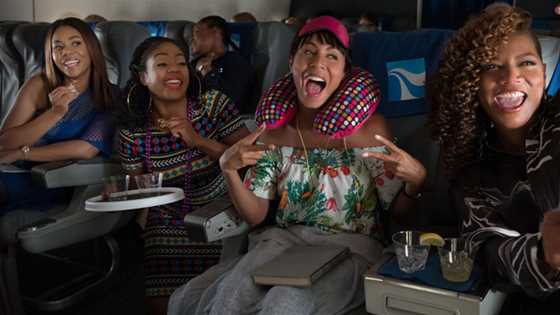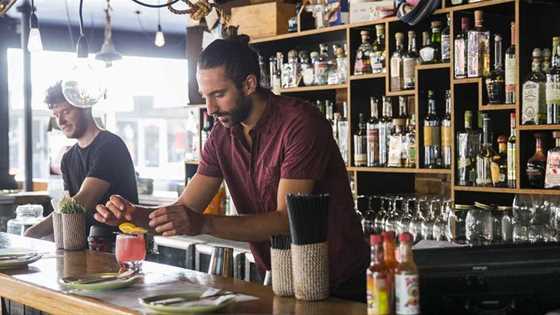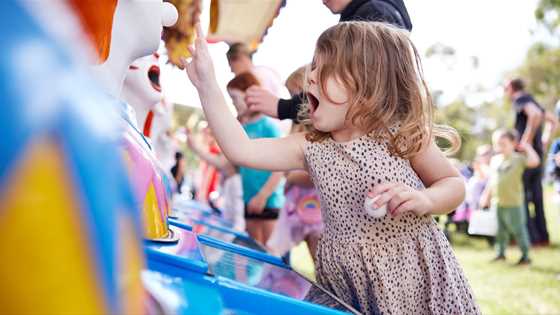Who says the world’s best whisky need come from Scotland? Unbound by traditional constraints, Australian whisky is starting to turn heads – none more so than an award-winning distillery in our own backyard.
Throw in the fact that Perth is home to a couple of the country's best whisky venues, and it's little wonder a wee dram has become our drink of choice.
Whisky. It's a word that invokes images of the windswept Scottish highlands, sprawling plantations at the foot of the Appalachians and the rugged coastline of Northern Ireland. But dry, hot Australia? Surely not.
And yet, the country's trophy case is brimming with medals from some the world's most prestigious competitions. An impressive achievement considering the industry is, for all intents and purposes, only two decades old. Jim Murray, author of the annual Whisky Bible and the world's foremost whisky expert, is a fan. In 2013, he dubbed Lark Distillery's single malt "unquestionably one of the world whiskies of the year". The previous year, Nant Distilling Company's single malt rated among Jim's Top 50 Whiskies in the World, while this year, Timboon Railway Shed Distillery "stole the show".
Then there's Sullivan's Cove. Once awarded Best Small Malt Whisky Distillery of the Year, the distillery produces the country's greatest-selling whiskies. Nevertheless, it was obliged recently to limit sales or risk running out. Chief distiller Patrick Maguire says it's not an altogether terrible problem to have. "The industry has come a long way over the past few years and this is exactly the situation we hoped we would be in one day, we just didn't expect it to happen this soon," he says.
So what makes Australian whisky special? The beauty of it is that distillers are free to innovate and push boundaries. Countries with rich whisky traditions such as Scotland or America are forced to adopt tricks to ensure economy and consistency, such as the colour-enhancing additive 'distiller's caramel' or chill filtering for clarity. Both processes come at a cost of flavour.
Another strength of Australian whisky is that it's made in small batches, by passionate owners/distillers rather than computers. The resulting batches – or 'expressions', as they're called in the world of whisky – are celebrated for their uniqueness, much like vintages of wine.

One of the biggest proponents of Australia's trademark, high-quality, low-yield whisky production is WA's own Cameron Syme, owner of Great Southern Distilling Company.
"WA has some of the best water, the best grain and the best climate in the world... why the hell aren't we making whisky?" That's the question Cameron asked himself in 1994. Fast forward 20 years and Cameron has been dubbed a "frontrunner of whisky" by the founder of the UK Distillers Association.
Not that it came easy. "I spent years researching," says Cameron. "I painstakingly designed the equipment and the stills, just piecing it together myself. There are a lot of barriers to entry in this business – it's not something you can just pick up." For Cameron, a lawyer by trade, it took years of training in Tasmania and Scotland as well as receiving invaluable mentoring from the man Cameron calls "the grandfather of Australian whisky" and founder of Lark Distillery, Bill Lark.
The secret to Cameron's whisky? Local grain, local water, an ideal climate and very small batches. Great Southern Distilling Company produces two barrels a week, compared to the Scottish distilleries that crank out 350 barrels a week, or Jack Daniels Distillery at 2000 barrels a day. Bottles cost between $130 and $2000, with the average bottle priced at $350. "We can't compete with the larger distilleries in terms of economies of scale," says Cameron. "We just make the highest quality we can. Demand is now outstripping supply – we're now selling whisky back to Scotland."
And the experts are starting to take note. Cameron's most popular range of single malt, Limeburners, has won medals at international spirit competitions, including silver at the prestigious International Wine and Spirit Competition in London for the last six years running.
Perhaps the greatest testament to Great Southern Distilling Company's success came two years ago when the SAS commissioned a special barrel to be bottled as gifts for visiting dignitaries. "We were so honoured to have been asked. I felt that their philosophy, of striving to be the best, was similar to ours, so we donated an entire barrel of our select Director's Cut."
Yes, these are heady times for WA whisky lovers. But it's not just whisky bars like Varnish on King or Helvetica where you find evidence of Perth's growing interest in whisky. Membership is on the rise in local whisky clubs like the Scotch Malt Whisky Society, Perth Whisky Club and Varnish on King's own Kentucky Club. Devlin's, a popular cigar and whisky shop in Subiaco, hosts regular members-only whisky events. Gentlemen's Hair Lounge in Subiaco is even offering clients tumblers of whisky to sip while they get their hair cut.
As a response, a handful of new whiskies and distilleries are on the cards. Most promising is Whipper Snapper Distillery in East Perth, which will comprise a retail store, tours and tastings. The Grove Distillery in Busselton is also said to be developing whiskies, and Great Southern Distilling Company's second venue is due to open in November in Margaret River, complete with a cellar door, distillery and tavern.

But it's not all happy days for the industry. Distilling whisky is an expensive, risky business. Bill McHenry of William McHenry and Sons Distillery in Tasmania laments that the government offers so little support. "Investment in increased production is critical and the tax system is probably our biggest hindrance," says Bill. "Our whiskies are taxed at one of the highest rates in the world."
Cameron agrees. "The tax burden is now over $78.44 per litre of alcohol and it goes up twice a year," says Cameron. "One senator told me that the Australian government considers that spirits need a 'sin tax' and won't give us the same breaks as wineries or breweries. It's not a fair system, but they are the rules we have to play by."
Nick Odell, ReStore's assistant manager and buyer, sees the effect of Australian whisky's hefty price tag first-hand. "The public has a problem paying more for a local product than a single malt from an established Scottish distiller, who has obviously been making whisky for a lot longer," says Nick. "Australian whisky is very young and I think public perception will change as the whisky does."
Whisky. It's a word that invokes images of the windswept Scottish highlands, sprawling plantations at the foot of the Appalachians and the rugged coastline of Northern Ireland. But dry, hot Australia? Surely not.
And yet, the country's trophy case is brimming with medals from some the world's most prestigious competitions. An impressive achievement considering the industry is, for all intents and purposes, only two decades old. Jim Murray, author of the annual Whisky Bible and the world's foremost whisky expert, is a fan. In 2013, he dubbed Lark Distillery's single malt "unquestionably one of the world whiskies of the year". The previous year, Nant Distilling Company's single malt rated among Jim's Top 50 Whiskies in the World, while this year, Timboon Railway Shed Distillery "stole the show".
Then there's Sullivan's Cove. Once awarded Best Small Malt Whisky Distillery of the Year, the distillery produces the country's greatest-selling whiskies. Nevertheless, it was obliged recently to limit sales or risk running out. Chief distiller
Patrick Maguire says it's not an altogether terrible problem to have. "The industry has come a long way over the past few years and this is exactly the situation we hoped we would be in one day, we just didn't expect it to happen this soon," he says.
So what makes Australian whisky special? The beauty of it is that distillers are free to innovate and push boundaries. Countries with rich whisky traditions such as Scotland or America are forced to adopt tricks to ensure economy and consistency, such as the colour-enhancing additive 'distiller's caramel' or chill filtering for clarity. Both processes come at a cost of flavour.
Another strength of Australian whisky is that it's made in small batches, by passionate owners/distillers rather than computers. The resulting batches – or 'expressions', as they're called in the world of whisky – are celebrated for their uniqueness, much like vintages of wine.
One of the biggest proponents of Australia's trademark, high-quality, low-yield whisky production is WA's own Cameron Syme, owner of Great Southern Distilling Company.
"WA has some of the best water, the best grain and the best climate in the world... why the hell aren't we making whisky?" That's the question Cameron asked himself in 1994. Fast forward 20 years and Cameron has been dubbed a "frontrunner of whisky" by the founder of the UK Distillers Association.
Not that it came easy. "I spent years researching," says Cameron. "I painstakingly designed the equipment and the stills, just piecing it together myself. There are a lot of barriers to entry in this business – it's not something you can just pick up." For Cameron, a lawyer by trade, it took years of training in Tasmania and Scotland as well as receiving invaluable mentoring from the man Cameron calls "the grandfather of Australian whisky" and founder of Lark Distillery, Bill Lark.
The secret to Cameron's whisky? Local grain, local water, an ideal climate and very small batches. Great Southern Distilling Company produces two barrels a week, compared to the Scottish distilleries that crank out 350 barrels a week, or Jack Daniels Distillery at 2000 barrels a day. Bottles cost between $130 and $2000, with the average bottle priced at $350. "We can't compete with the larger distilleries in terms of economies of scale," says Cameron. "We just make the highest quality we can. Demand is now outstripping supply – we're now selling whisky back to Scotland."
And the experts are starting to take note. Cameron's most popular range of single malt, Limeburners, has won medals at international spirit competitions, including silver at the prestigious International Wine and Spirit Competition in London for the last six years running.

Cameron Syme, founding director of Albany's Great Southern Distilling Company.
Perhaps the greatest testament to Great Southern Distilling Company's success came two years ago when the SAS commissioned a special barrel to be bottled as gifts for visiting dignitaries. "We were so honoured to have been asked. I felt that their philosophy, of striving to be the best, was similar to ours, so we donated an entire barrel of our select Director's Cut."
Yes, these are heady times for WA whisky lovers. But it's not just whisky bars like Varnish on King or Helvetica where you find evidence of Perth's growing interest in whisky. Membership is on the rise in local whisky clubs like the Scotch Malt Whisky Society, Perth Whisky Club and Varnish on King's own Kentucky Club.
Devlin's, a popular cigar and whisky shop in Subiaco, hosts regular members-only whisky events. Gentlemen's Hair Lounge in Subiaco is even offering clients tumblers of whisky to sip while they get their hair cut.
As a response, a handful of new whiskies and distilleries are on the cards. Most promising is Whipper Snapper Distillery in East Perth, which will comprise a retail store, tours and tastings. The Grove Distillery in Busselton is also said to be developing whiskies, and Great Southern Distilling Company's second venue is due to open in November in Margaret River, complete with a cellar door, distillery and tavern.
But it's not all happy days for the industry. Distilling whisky is an expensive, risky business. Bill McHenry of William McHenry and Sons Distillery in Tasmania laments that the government offers so little support. "Investment in increased production is critical and the tax system is probably our biggest hindrance," says Bill. "Our whiskies are taxed at one of the highest rates in the world."
Cameron agrees. "The tax burden is now over $78.44 per litre of alcohol and it goes up twice a year," says Cameron. "One senator told me that the Australian government considers that spirits need a 'sin tax' and won't give us the same breaks as wineries or breweries. It's not a fair system, but they are the rules we have to play by."
Nick Odell, ReStore's assistant manager and buyer, sees the effect of Australian whisky's hefty price tag first-hand. "The public has a problem paying more for a local product than a single malt from an established Scottish distiller, who has obviously been making whisky for a lot longer," says Nick. "Australian whisky is very young and I think public perception will change as the whisky does."

Whisky Facts
It's believed that the first whisky was created by monks in Ireland in the 15th century. It takes its name from the Gaelic uisce beatha ('water of life').
Whisky is made with grains – wheat, barley, rye or corn – which are malted and milled before yeast is added to convert the sugars to alcohol. The liquid is then distilled, boiled and aged in wooden casks.
Scotch is the name of Scottish whisky whose trademark smoky flavour comes from barley dried over peat fire. Bourbon is a whisky first created in Kentucky, USA. It's made of at least 51 per cent corn, which is why it's sweeter than other whiskies. Rye whisky is made from a grain mash of which 90 per cent must be rye. Single Malt is regarded as the best, and is made exclusively from malted barley grains.
Wooden barrels, or casks, add both colour and flavour to whisky through a process called finishing. French oak gives a robust, spicy vanilla flavour, while American oak tends to lend whiskies a sweeter flavour.
Unlike wine, whisky ages only in barrels, and not in the bottle. Once open, bottled whisky can last for years. In that regard, whisky is a much better investment than wine.
Ice can dull the flavour of whisky by suppressing its flavour and aroma. Adding a small amount of water to dilute the whisky to 30% alcohol is widely considered best as it brings out different flavours.
The 'angel's tax' is the four per cent of whisky that evaporates from barrels every year.

Helvetica
Perth's Whisky Bars
While any bar worth its weight stocks a whisky or two, Perth's handful of whisky bars are a dram lover's dream.
Wee Bar
Originally designed to be a wee Scottish and French bar (apt name, wouldn't you say?), Wee is becoming known as Mt Hawthorn's favourite whisky venue. The eccentric, kitsch-covered bar serves a range of Scottish whiskies with comfort food like cheese boards, chocolate fondue and (if you're lucky) haggis.
Drink Classic Scotch like Port Charlotte 'Peat Project' and Glenmorangie 'The Nextor D'.
406 Oxford Street, Mt Hawthorn.
Varnish on King
This newish small bar in the CBD is the city's first dedicated American-style whisky bar, stocking 180 bourbons, ryes, and single malts. Standouts include Woodfood Reserve, Noah's Mill and Bulleit, but it's the bar's barrel-aged cocktails that are turning heads.
Drink Pickleback. Originally a shooter developed by American college kids, Varnish takes the humble drink up a level by matching a shot of High West Double Rye Whiskey with house-infused pickle brine. This one's for sipping, not shooting.
75 King Street, Perth.
Helvetica
One of Perth's first small bars, Helvetica has grown to become a favourite for its
laid-back vibe, great service and epic collection of whiskies from around the world. We're a huge fan of the bottle lockers upstairs where patrons can stash their favourite whiskies until their next drinking session. Oh, and did we mention Helvetica serves the best Mint Julep in town?
Drink A Manhattan, Mint Julep or a boilermaker: Rogers beer alongside a shot of Arran 'Single Cask' Sherry Cask 1996.
101 St Georges Terrace, Perth.
Miss Kitty's Saloon
Inglewood's North American-themed bar has a zany fit-out, traditional soul food
(fried pickles and poutines, anyone?) and a solid selection of North American whiskies, including ever-popular Seagrams 5 Star (it might not be a top-shelf liquor, but the nostalgia factor is gold).
Drink Cinnamon Rye Shot that comes complete with a little lolly coke bottle floating inside.
882 Beaufort St, Inglewood.








